The history of Hip-Hop on Miami radio, at least in its early days, was a parable of disrespect, despite ample evidence that hip-hop was a genre that was going to thrive in that most beautiful of cities. Old-schoolers such as 2 Live Crew, its founder Luther “Uncle Luke” Campbell and the Poison Clan paved the way for current 305-based artists such as Rick Ross and Pitbull. But the whole process would not have gone down without the passionate belief of local radio station DJ’s that what they were playing, and believed in, was indeed the real deal.
Miami Hip-Hop prevailed, flourished and evolved, thanks to a rich concoction of black, Latino, Afro-Cuban and Caribbean influences that made Miami the perfect storm for a burgeoning and lasting scene. 24HourHipHop.com sat recently with two DJ’s to get their perspective of the city’s past and present from a Hip-Hop slant. Mohamed Moretta, formerly from Miami, and now a successful entrepreneur in Los Angeles and Las Vegas, is quite familiar with those pioneering days as a DJ on radio stations WHQT and WPOW during Miami Hip-Hop radio’s infancy in the late ‘80s and early ‘90s. The second, Nick V, co-host along with his brother Eric V of the wildly successful Baka Boyz syndicated programs “Hip-Hop Master Mix” and “The Pop Mix Show,” brings a current perspective to the thriving Miami Hip-Hop scene.

Hip-Hop on Miami radio, especially in the pioneering late ‘80s and early ‘90s, was practically non-existent, save for the efforts of such airwave legends as Uncle Al, DJ Laz, Ghetto Style DJ and many others. “Contemporary Hits Radio” (CHR), Top 40 and a new format, alternative, refused to rock the experimental boat with an unproven format. Adding to the problem, urban radio doggedly stuck to traditional R&B/soul; all this ignorant bliss while overlooking massive sales that hip-hop and rap were racking up at retail. (Yeah, remember retail?)
The Baka Boyz – Nick and his brother Eric Vidal – moved to Miami from Los Angeles in 2003 to become the very first voices on hip-hop-formatted station, WMIB 103.5 The Beat. Their three-year morning drive stint helped to drive the point that hip-hop would work on Miami radio. “We came into Miami to listen to Power 96 and 99 Jamz. Eric and I looked at each other and basically said, ‘This is gonna be a piece of cake; these guys really don’t know how to do hip-hop.’ What they were doing was status quo; they weren’t super-serving the hip-hop audience. I think we changed the landscape of Miami hip-hop radio forever. When we came in, we embraced the marketplace.”

“Embraced” is putting it mildly, as the Baka Boyz seized upon a vacancy and ran with it. Did Power 96 and 99 Jamz sleep on an obviously boiling hip-hop scene? Tough to say, but the Baka Boyz hit the streets with a vengeance, utilizing street teams to put the word out that normal wasn’t going to cut it in Miami. An all-out airwaves assault on the Beat woke Miami to such artists as the afore-mentioned Pitbull, Rick Ross, Kelis, Lil Jon, Trick Daddy and Ciara, as well as established acts such as LL Cool J and Beyonce. “It was perfect timing for us because the mix show had to evolve into a Southern sound as well,” Nick V recalls, “so being in Miami gave us that edge.”
When ‘The Beat’ gig ended in 2006, they went on to carve out a highly successful syndicated niche. Now, ever the workhorses, they are developing as producers by creating beats for artists signed to their camp as well as those on the national radar. And you’ve probably already heard a gazillion of their legendary remixes on current and past hits. Wanna keep up with the haps surrounding the Baka Boyz? Hit them up at @Violator88 or @Bakaboyz on Twitter, and you can go to Sound Cloud to hear their latest beats, or visit bakaboyz.com to hear new remixes almost on a daily basis.
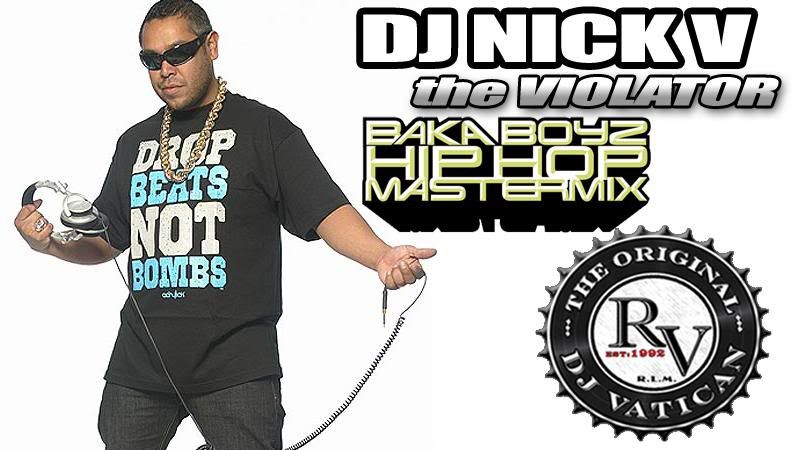
IF THAT WORKS FOR YOU…
Oddly, Mohamed Moretta’s saga is the total opposite of Nick V’s journey. Nick V left Los Angeles and took over Miami, while Moretta left Miami for Groove 103.1 and made himself a name by introducing South Florida music to the City of Angels. Moretta, known then as “The Turntable Terrorist” for his unconventional playlists, spun unknown artists that few but in South Florida would hear. His philosophy: “If it’s good music, I play it.” Moretta points to his own multi-cultural background as a Dominican, Haitian, Italian, Jewish and who knows what else as a driving force in shaping his musical tastes: “I’m that international guy who is fearless in terms of music; no boundaries and no language barriers.”
From 1979 to the mid-‘90s, Moretta worked at WMDX, WNWS, WHQT, WPOW and WEDR, exposing such acts such as El General, Ricky Martin, Illegales and many more to an appreciative South Florida listenership. Early attempts by Moretta to start a weekend mix show in 1979 met with stone ears. Then, in 1982, the powers that be at WHQT decided to roll the dice and start a mix show, but it went to two other DJ’s.
According to Moretta, he got his chance when one of the two DJ’s used an older model turntable needle instead of a brand new one during a live broadcast from a Miami dance club. When the needle dropped, the sound quality plummeted 60%, dangerous for a live broadcast. Frustrated, the DJ stormed out of the DJ booth, and a frantic engineer grabbed Moretta to take over, thus landing him the WHQT mix show shift. Moretta went on to break too many records to list, topped by one of the best-selling novelty records of all time, “Macarena,” which sold over 30 million copies worldwide. Noting rap music’s growing potential Moretta shifted his focus. “Nobody, and I mean nobody, was playing rap back then,” Moretta relates. The first song he played intensely was LL Cool J’s “I Need a Beat.,” Def Jam Records ‘ first-ever release. “From that point on, I played all the new rap artists – LL Cool J, UTFO, Run DMC, T La Rock, EPMD: I brought them to Miami first.”
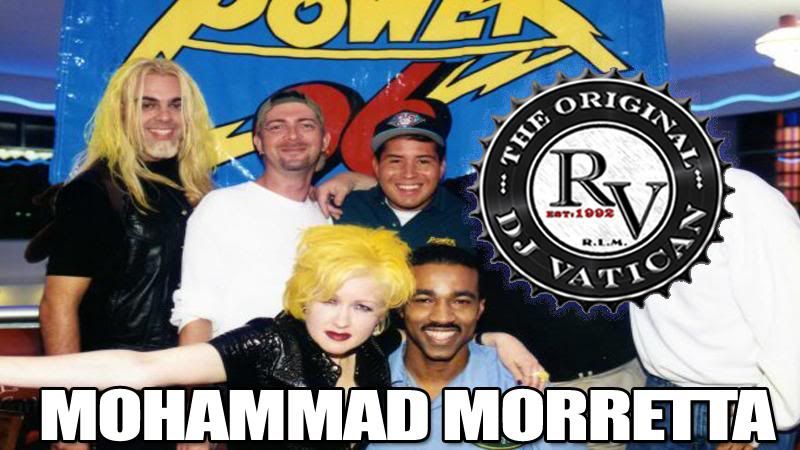
Moretta and Nick V are members of the DJ Vatican, an influential conclave of over 70 key national mix show DJ’s who meet once a month to discuss what works in his or her radio market. If you’re not familiar with the critical role mix show DJ’s play in the creation of a hit, here’s the deal: Months before you are actually aware of that “can’t live without it” song, you have been exposed to it subliminally countless times via either weekend radio mix shows, or at your favorite dance club. Mix show DJ’s literally mix in new songs with established hits, then gauge listeners’ reactions either through call-ins to radio, or how many bodies occupy the dance floor. Record labels drool for information that tips them as to whether a song works, or not.
Miami has now earned a reputation as a thriving international city that can proudly point to its place as a major influence in American musical culture. Thanks to Mohamed Moretta and the Baka Boyz, along with the endurance of early pioneers, Miami will continue to have a prominent place in hip-hop – and radio – history for generations to come.



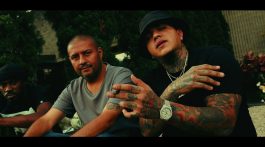

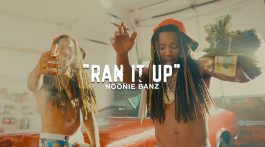
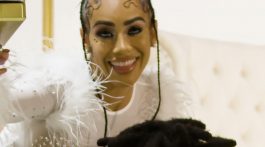

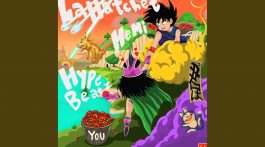
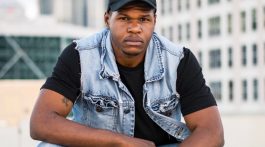

No Comment